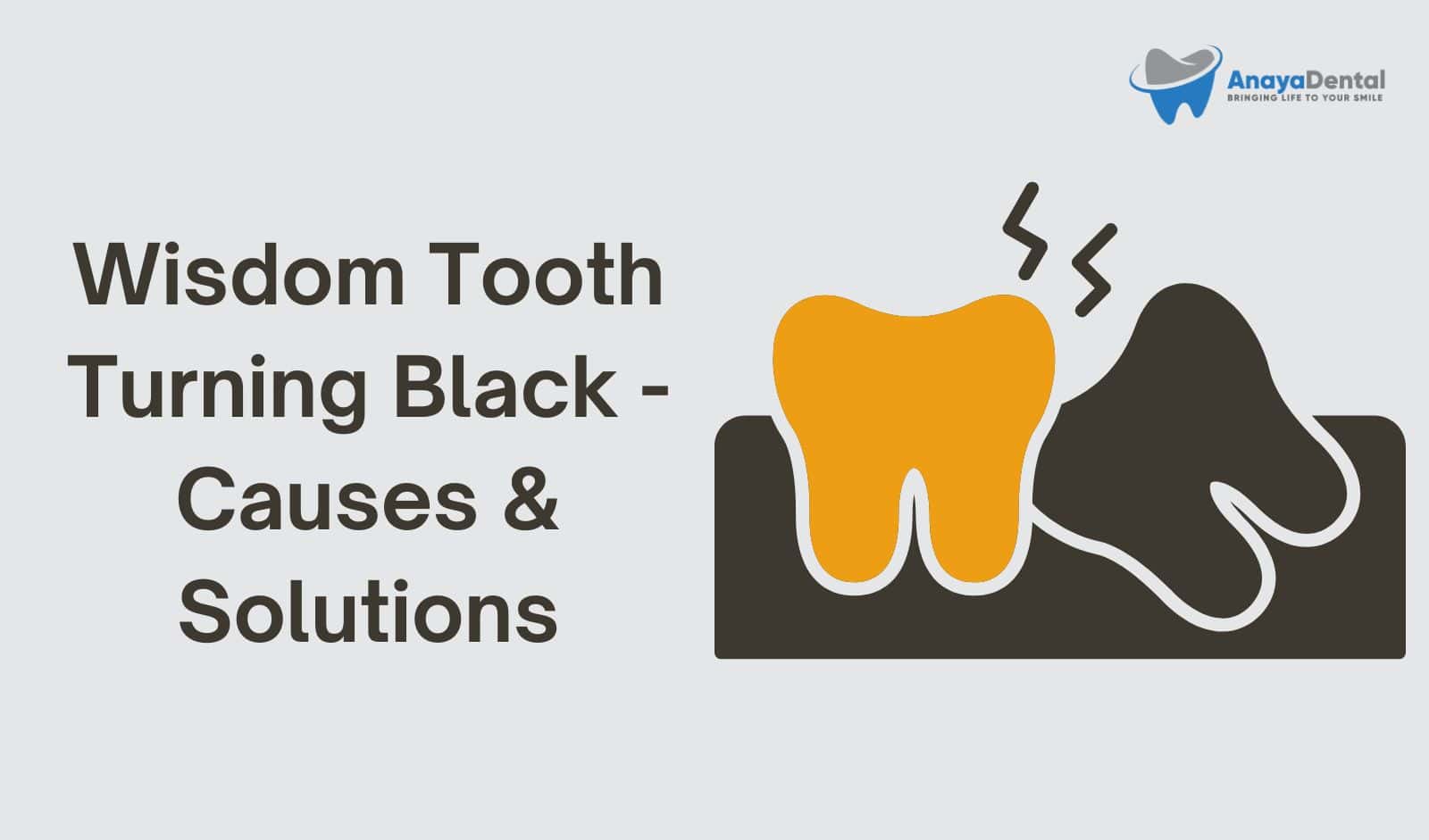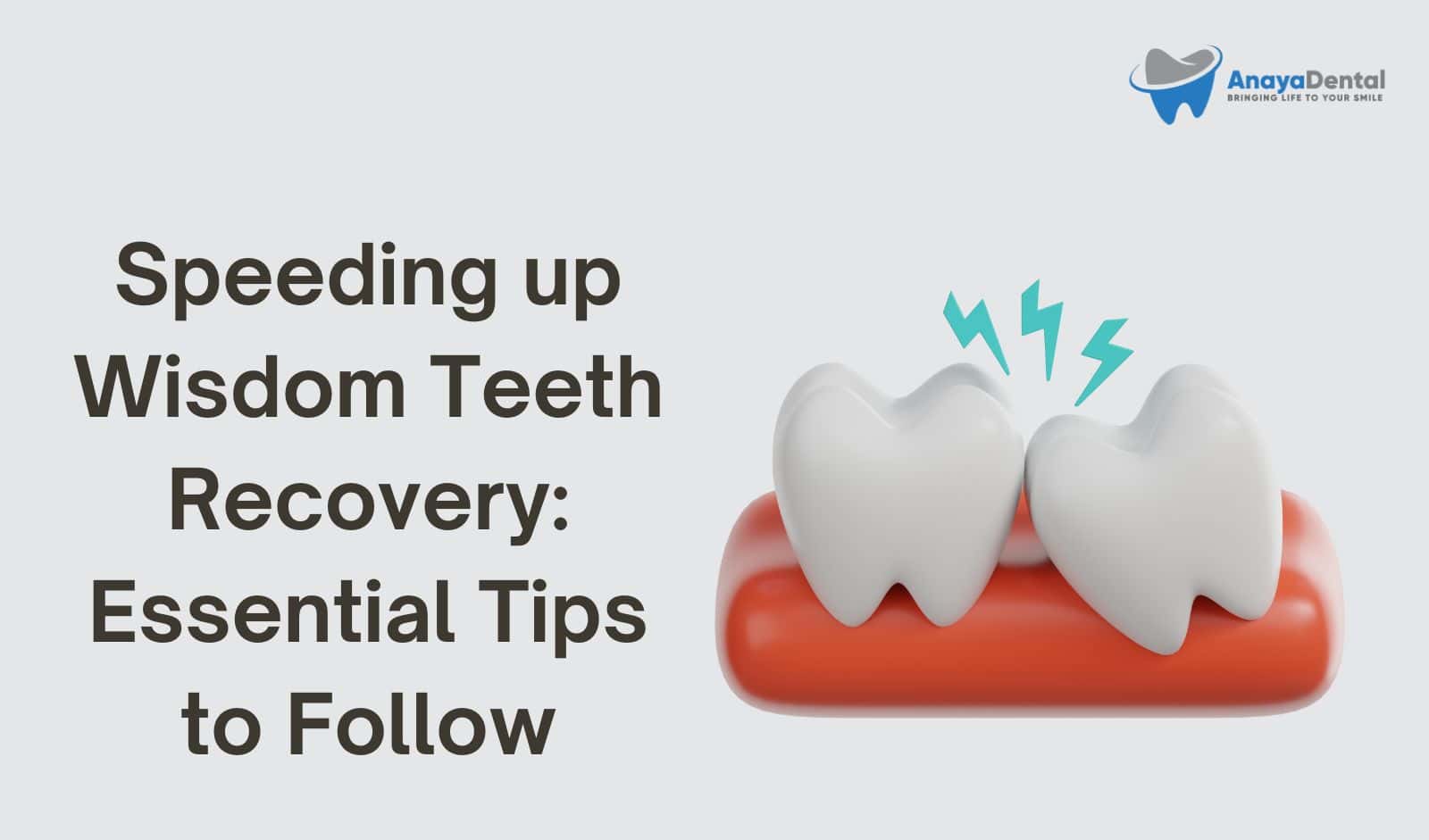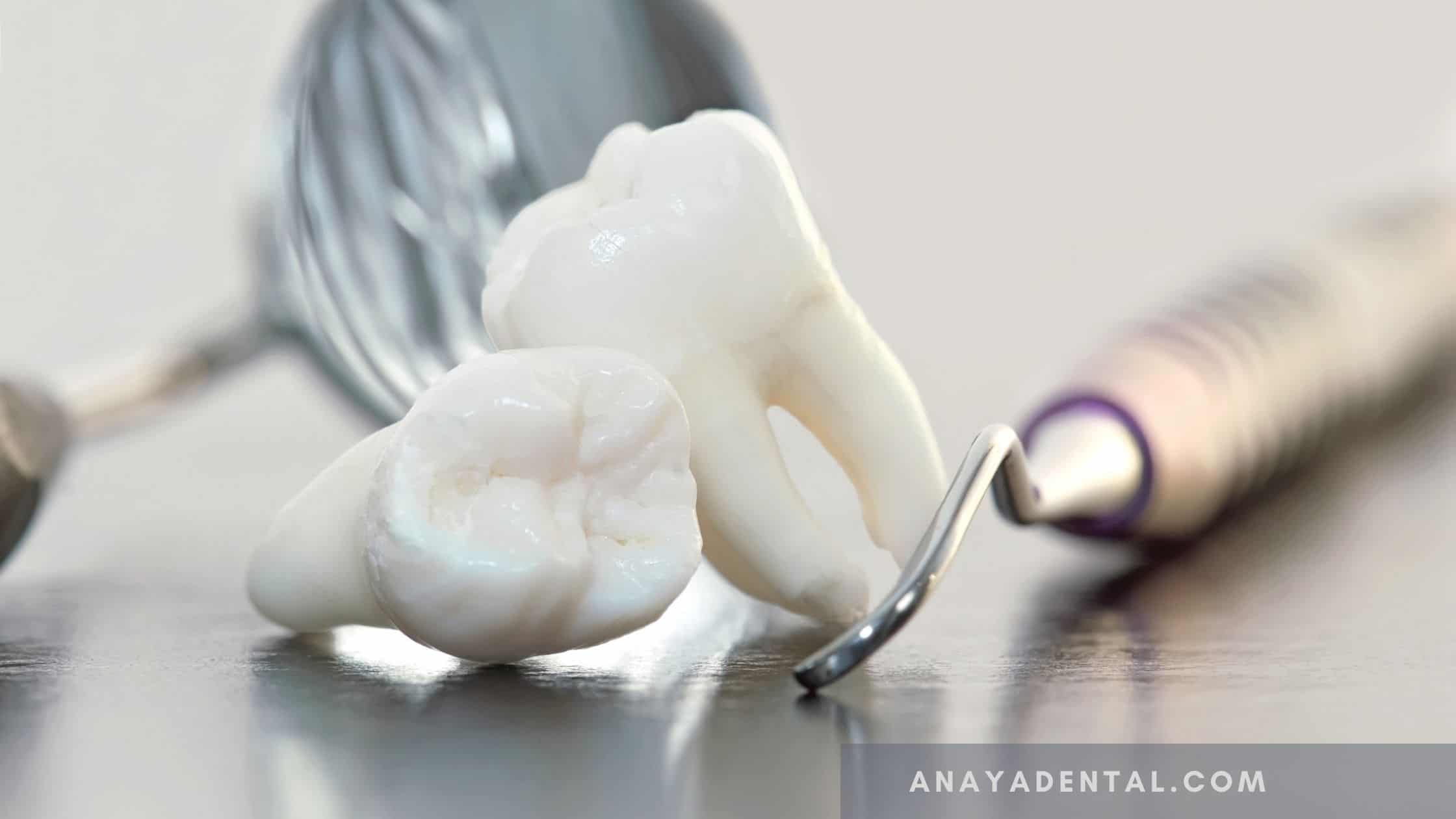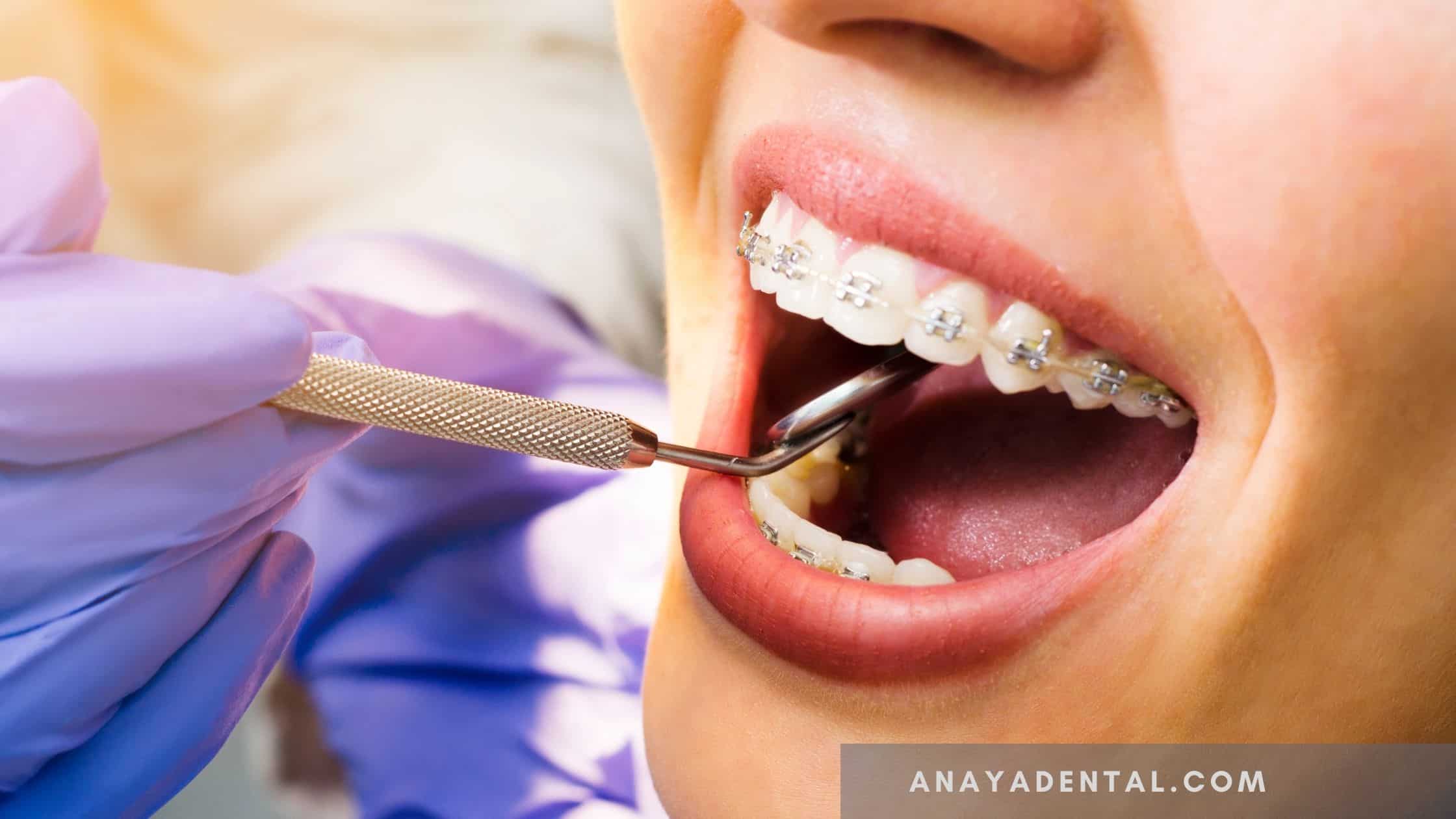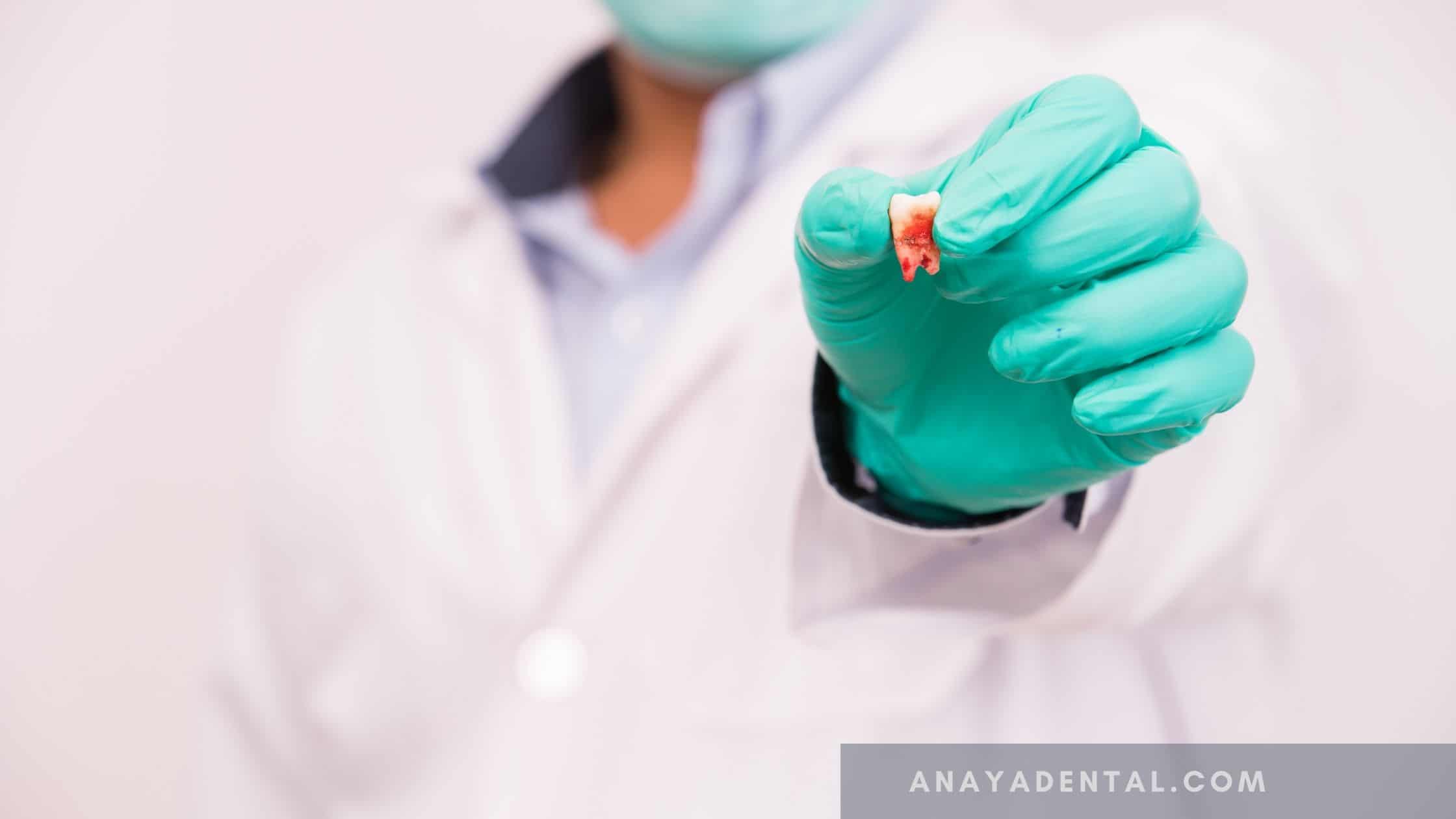What Causes a Wisdom Tooth to Turn Black?
A wisdom tooth turning black can be alarming, and it may indicate underlying dental or health issues. Wisdom teeth, the third set of molars located at the back of your mouth, usually appear between the ages of 17 and 25. Due to their location, they are more prone to issues like decay and discoloration. In this article, we will explore the various causes of a black wisdom tooth, its potential health implications, prevention methods, treatment options, and when to seek emergency dental care.
Key Takeaways
- Black wisdom tooth causes include tooth decay, pulp necrosis, external staining, trauma, and exposure to medications or toxins.
- Health risks associated with a black wisdom tooth can extend beyond the mouth, potentially leading to infections, abscesses, or even oral cancer in rare cases.
- Prevention focuses on maintaining proper oral hygiene, avoiding tobacco, limiting consumption of staining foods, and regular dental checkups.
- Treatment options vary from professional cleaning and fillings to root canals or extraction, depending on the underlying cause.
- Emergency dental care is needed if the black wisdom tooth is accompanied by pain, swelling, or signs of infection.
Common Causes of a Black Wisdom Tooth
Understanding why a wisdom tooth turns black is crucial to addressing the problem. Several factors can contribute to the darkening of a tooth, ranging from simple staining to severe decay. Below are the primary causes:
1. Tooth Decay
Tooth decay is one of the most frequent reasons why a wisdom tooth may turn black. Bacteria in the mouth produce acids that erode the enamel, the tooth’s protective outer layer. If decay is left untreated, it can penetrate deeper into the tooth, leading to cavities and a blackened appearance. Wisdom teeth, located at the very back of the mouth, are particularly prone to decay because they are difficult to reach with a toothbrush and floss, making proper cleaning a challenge.
Try Our Dental Calculators
Key Points:
- Cause: Bacteria-produced acid eroding enamel.
- Risk: Wisdom teeth are harder to clean, increasing decay risk.
- Solution: Regular brushing, flossing, and dental visits.
2. Pulp Necrosis (Tooth Death)
Pulp necrosis occurs when the soft tissue inside a tooth, known as the pulp, becomes infected or dies. This can happen due to trauma, untreated cavities, or a deep infection. As the tissue decays, it can cause the tooth to turn black. This condition is serious and usually results in the need for a root canal or tooth extraction.
Key Points:
- Cause: Infection or trauma leading to pulp death.
- Risk: Can spread infection to surrounding teeth or gums.
- Solution: Immediate dental care, possibly a root canal.
3. External Staining
Another reason for blackened wisdom teeth is external staining. This is typically caused by the consumption of dark-colored foods and drinks, such as:
- Coffee
- Tea
- Red wine
- Dark berries
Tobacco use, including smoking and chewing, can also lead to severe tooth discoloration. Although external stains are more common in front teeth, wisdom teeth can also be affected, especially if they are partially erupted.
Key Points:
- Cause: Dark foods, beverages, and tobacco use.
- Risk: Can affect both front and wisdom teeth.
- Solution: Reduce consumption of staining substances, professional cleaning.
4. Tooth Trauma
Physical injury or trauma to a wisdom tooth can damage its blood supply, leading to discoloration. A blow to the mouth, such as during a sports injury or accident, can cause the tooth to turn black as the nerve inside dies. Nerve death, or pulp necrosis, is a potential result of untreated trauma.
Key Points:
- Cause: Injury to the tooth, disrupting blood supply.
- Risk: May lead to nerve death and discoloration.
- Solution: Immediate dental attention, root canal if needed.
5. Medications and Toxins
Certain medications, like tetracycline, can cause dark staining on teeth if taken during childhood when teeth are developing. Additionally, exposure to toxins like lead can result in tooth discoloration, including the wisdom teeth.
Key Points:
- Cause: Medications such as tetracycline and lead exposure.
- Risk: Affects developing teeth, causing permanent discoloration.
- Solution: Monitor medication use during childhood, avoid exposure to harmful toxins.
Health Implications of a Black Wisdom Tooth
A black wisdom tooth is not merely a cosmetic concern; it can signal significant oral health issues. In many cases, it indicates decay or infection, which can have serious consequences if not treated promptly.
1. Infection and Abscesses
One of the most concerning health risks associated with a black wisdom tooth is the potential for infection. If decay or pulp necrosis is the cause, the infection can spread to the surrounding gum tissue, leading to abscesses (pockets of pus) and inflammation. Left untreated, these infections can affect not only your oral health but also your overall well-being.
Health Risks:
- Spread of infection: Infections can travel to other parts of the body.
- Abscesses: Pus-filled pockets can form around the tooth.
- Systemic concerns: Potential links to heart disease and other conditions.
2. Oral Cancer Concerns
Although rare, changes in tooth color, especially a blackening tooth, can sometimes be a sign of oral cancer. It is unlikely that the black tooth itself is cancerous, but any unusual changes in your mouth should be evaluated by a dental professional to rule out serious conditions.
Prevention of Tooth Discoloration
Preventing wisdom tooth discoloration revolves around maintaining excellent oral hygiene and adopting healthy lifestyle habits. Here are some steps you can take to keep your wisdom teeth, and all your teeth, in good condition:
1. Brush and Floss Regularly
- Brush your teeth at least twice a day, making sure to reach all the way to the back of your mouth to clean your wisdom teeth thoroughly.
- Floss daily to remove any food particles stuck between your teeth and gums.
2. Avoid Tobacco
- Tobacco use, whether smoking or chewing, can cause significant staining and increase the risk of decay.
3. Limit Staining Foods and Drinks
- Reduce your intake of dark-colored beverages such as coffee, tea, and red wine.
- Tip: Use a straw when consuming these drinks to minimize contact with your teeth.
4. Routine Dental Checkups
- Regular dental checkups are essential for maintaining oral health. Professional cleanings can help remove external stains, and your dentist can monitor the health of your wisdom teeth to catch potential issues early.
Treatment Options for a Black Wisdom Tooth
The appropriate treatment for a black wisdom tooth depends on the underlying cause. Some treatment options include:
1. Professional Dental Cleaning
- If the black color is due to external staining, a professional cleaning can remove the stains and restore the tooth’s natural color.
2. Fillings or Dental Crowns
- If decay is the cause, your dentist may need to fill the cavity or place a dental crown to restore the tooth’s structure.
3. Root Canal Treatment
- For cases of pulp necrosis, a root canal may be necessary. This procedure involves removing the damaged pulp, cleaning the tooth, and sealing it to prevent further infection.
4. Tooth Extraction
- In some instances, especially when the wisdom tooth is severely decayed or impacted, extraction might be the best solution. Removing the tooth can prevent further complications.
When to Seek Emergency Dental Care
If your wisdom tooth turns black and you experience additional symptoms, such as pain, swelling, or signs of infection, it’s crucial to seek emergency dental care. These symptoms may indicate a severe issue, such as an abscess or gum inflammation, which requires immediate treatment to avoid further health complications.
Signs You Need Emergency Dental Care:
- Severe toothache
- Swelling in your gums or face
- Presence of pus or a bad taste in your mouth
- Fever or other signs of infection
Conclusion
A black wisdom tooth can be caused by several factors, ranging from decay and pulp necrosis to external staining and trauma. While some cases may simply require a professional cleaning, others may necessitate more invasive treatments like root canals or extractions. Proper oral hygiene, regular dental checkups, and a healthy lifestyle are crucial for preventing tooth discoloration and maintaining overall oral health.
If you notice your wisdom tooth turning black, it’s essential to consult your dentist promptly to determine the cause and receive appropriate treatment. Ignoring the issue could lead to serious health implications, including infections or abscesses, which can affect your entire body. By addressing the problem early, you can maintain your oral health and prevent complications.
